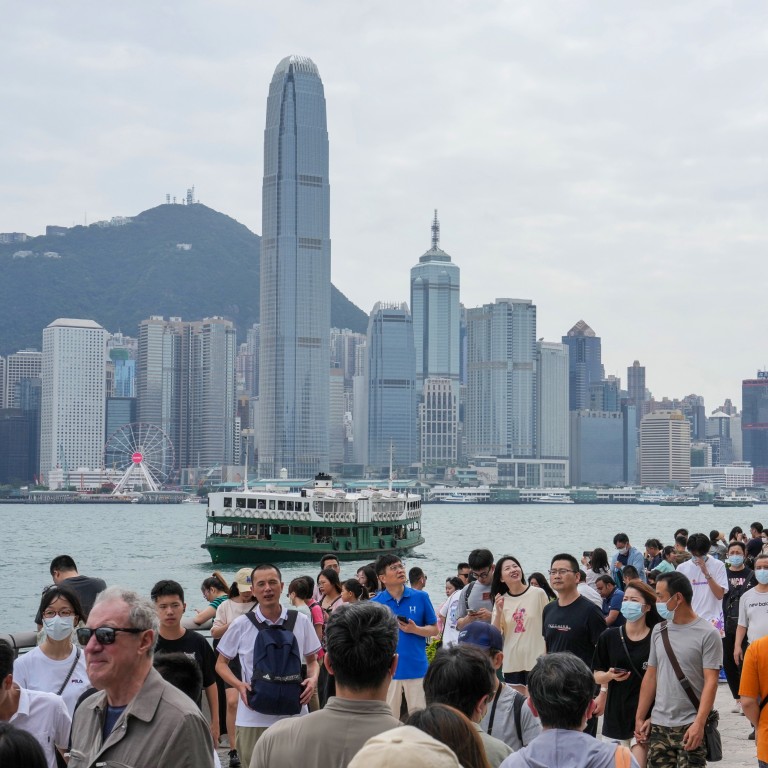
Hong Kong’s economy grew 2.7 per cent in first quarter, John Lee reveals, while hailing ‘golden week’ tourism and city’s ‘soft power’
- Chief executive projects 600,000 mainland visitors to converge on city by end of five-day break on Wednesday
- He expresses confidence in city’s economic showing in coming months, touting its many attractions and ‘charisma’
Hong Kong’s economy rebounded with a 2.7 per cent growth in the first quarter due to a rise in inbound tourism and domestic consumption, the city’s leader revealed on Tuesday, striking an upbeat note for the coming months by pointing to the surge in cross-border visitors during “golden week”.
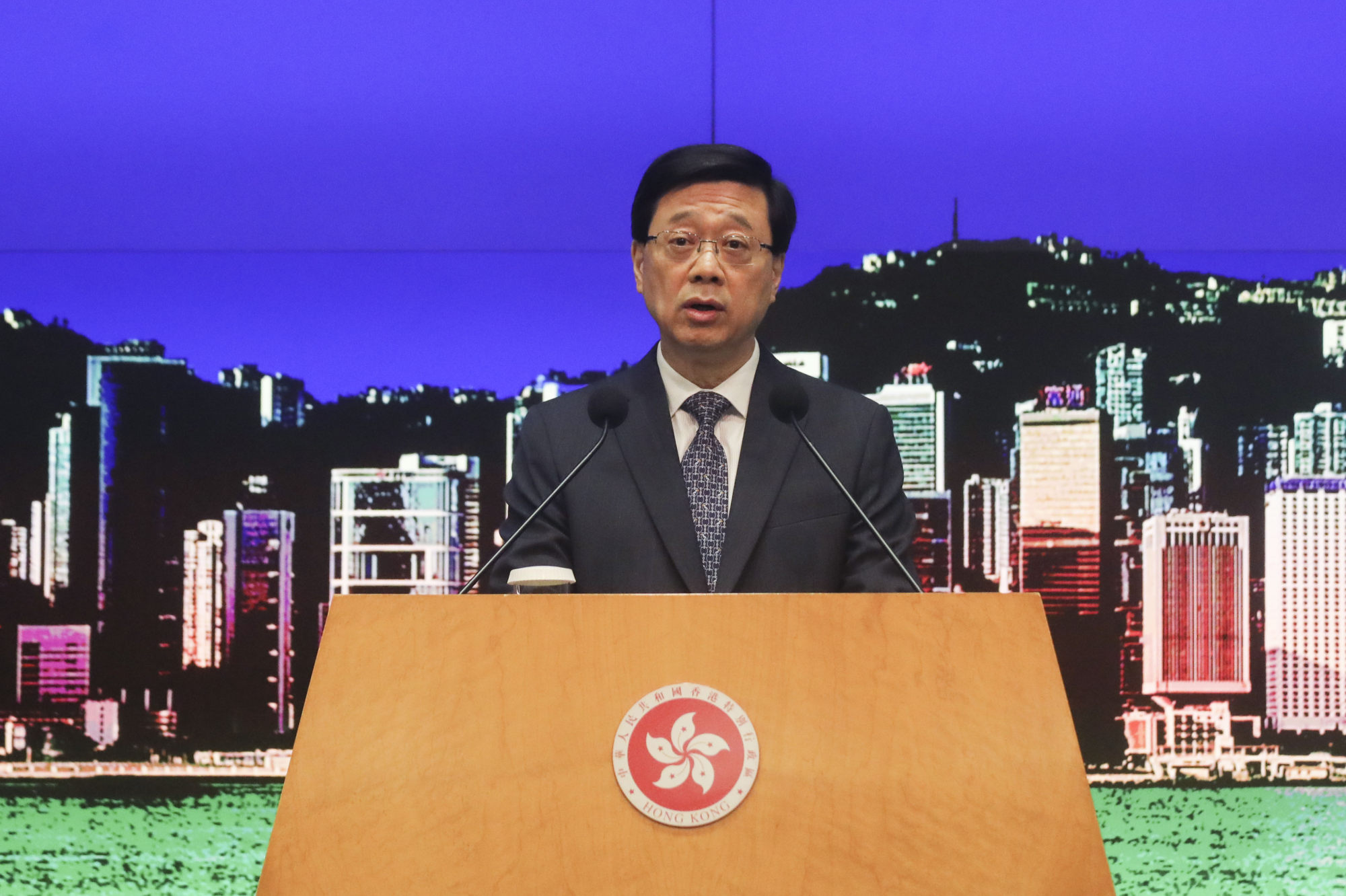
“Hong Kong always emphasises its attractions in many regards, with not just favourite shopping spots or good theme parks. We also have country parks and a lot of outlying areas which we think are very attractive to tourists,” Lee told reporters before his weekly meeting with the key decision-making Executive Council.
“We are seeing an active, energetic and ‘hotter’ city.”
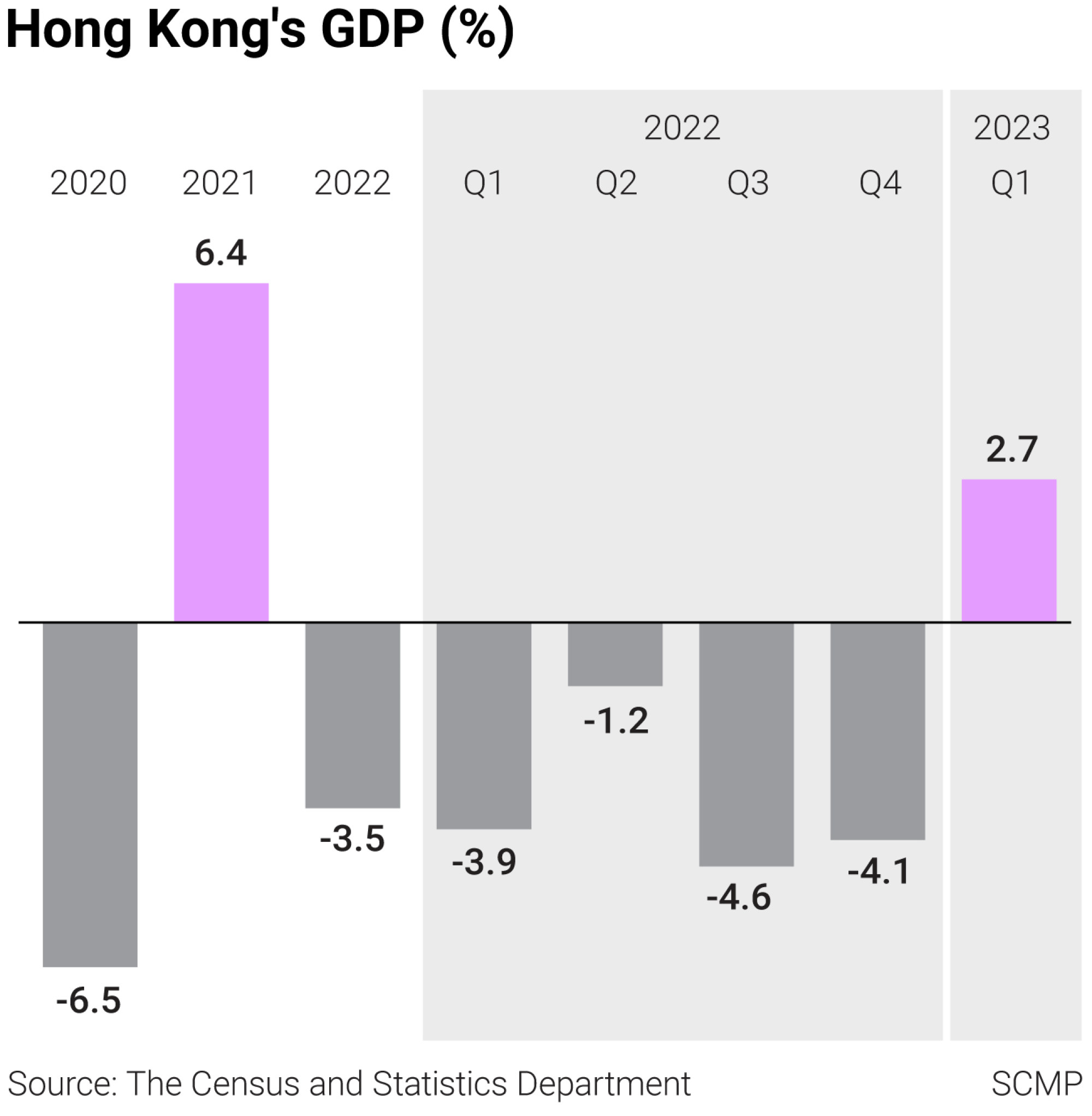
The growth comes after four consecutive quarters of contraction, with the economy shrinking by 4.1 per cent in the final three months of last year against the same period in 2021.
Comparing the latest two quarters, the local gross domestic product (GDP) climbed 5.3 per cent, an increase Lee partially attributed to recent marketing efforts.
“The series of large-scale promotional activities has helped stimulate tourism and consumption and boost the economy,” he said.
“Despite exports still falling in the first quarter, with the rapid growth of the mainland economy and the accelerated recovery of the city’s aviation capacity, I believe the economy in the second quarter will be better than the first, and this year’s economic performance will be better than last year’s.”
‘Happy Hong Kong’ drive, e-vouchers to strengthen economic recovery: Paul Chan
Lee noted that more than 760,000 tourists, including 320,000 mainlanders, had visited the city in the first three days of the Labour Day golden week break. He voiced confidence the number of mainland tourists would hit 600,000 when the holiday ended on Wednesday.
The chief executive added he had observed that tourists had shown diverse interests in choosing the places they wanted to see in Hong Kong, from “scenic spots and historical sites to theme parks, shopping hotspots, country parks, outlying islands and small shops in local districts”.
He added: “All this fully demonstrates Hong Kong’s charisma and soft power.”
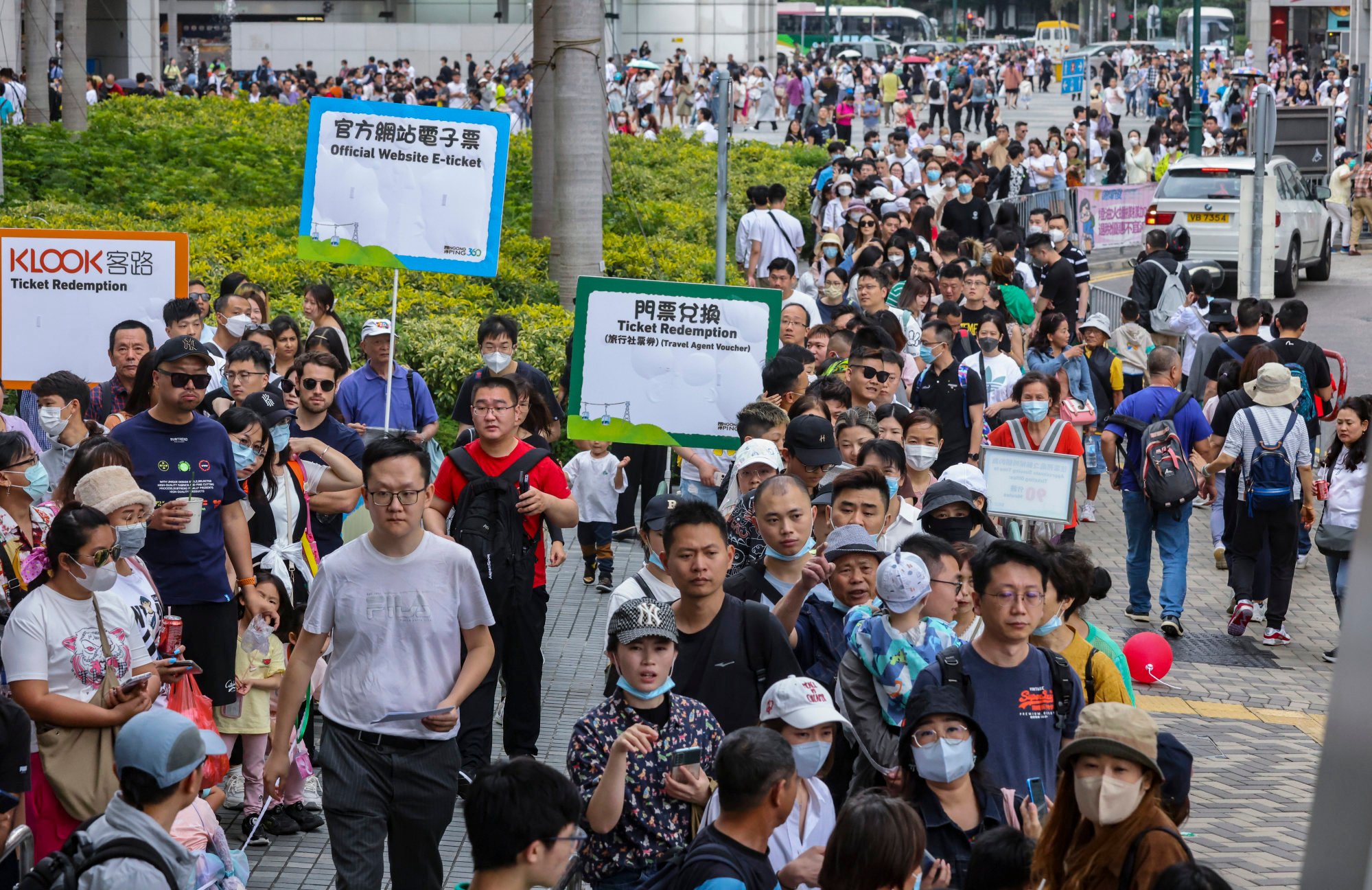
Lee called for creating more attractions for visitors, saying: “This will not just help tourism, but also make local developments go hand in hand with the development of tourism, helping overall job creation and development of the economy, and also create a positive image of Hong Kong being a very vibrant and attractive city.”
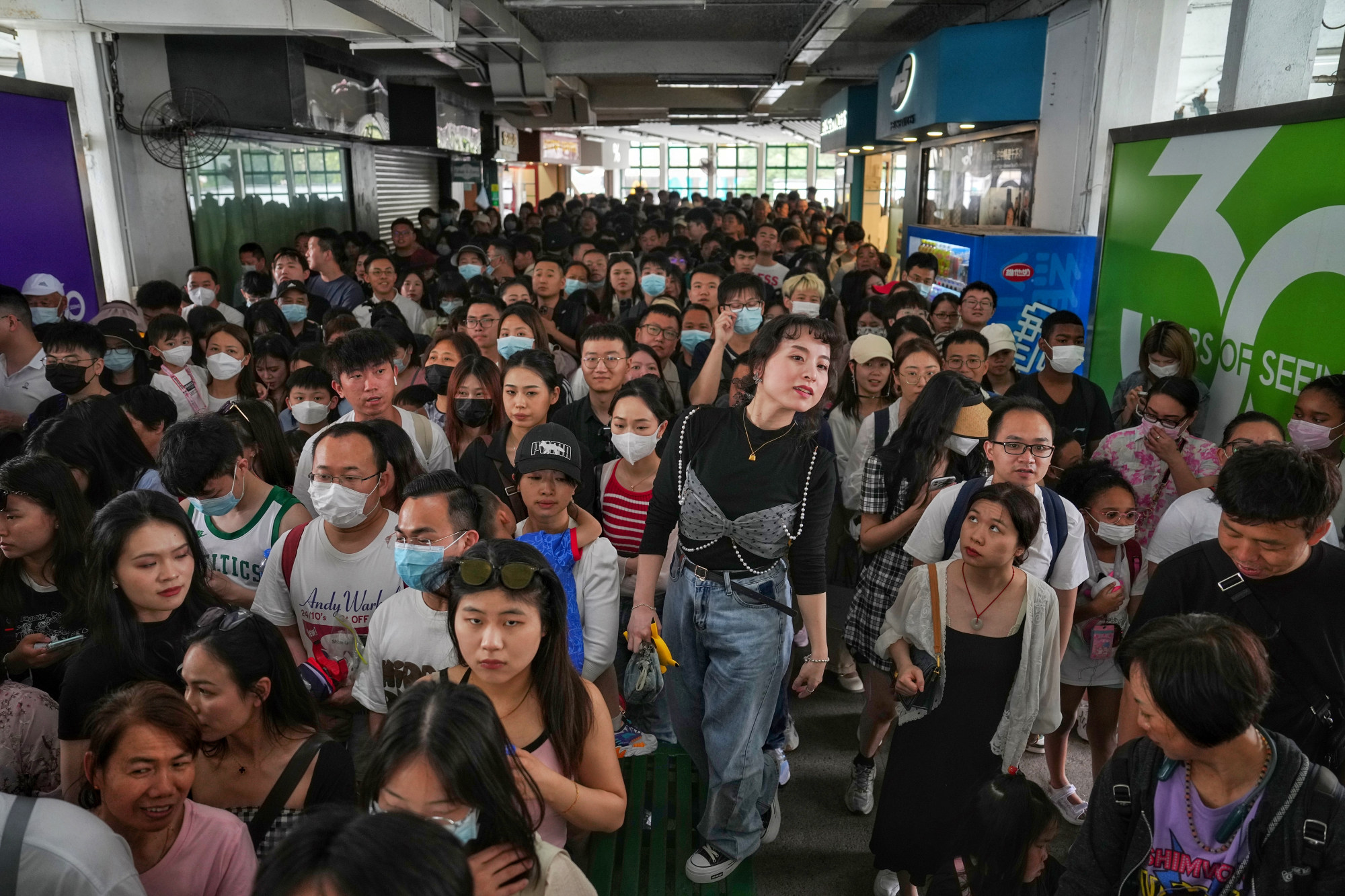
Lee said public order at various tourist spots was generally good during the long weekend, while crowding caused by tour groups eating in To Kwa Wan and Hung Hom was greatly eased, as many tour group operators had been diverted to other places.
He added the government would ramp up efforts to promote the use of electronic payment to bring greater convenience to visitors.
The city leader hailed the HK$20 million (US$2.5 million) “Happy Hong Kong” campaign, which kicked off on Saturday with discounted film tickets and free festival passes, saying most residents enjoyed the events and had smiles on their faces.
110,000 mainland Chinese tourists leave Hong Kong on first day of ‘golden week’
The film promotion on Saturday, with tickets priced at just HK$30, drew more than 222,000 residents, breaking the record for single-day entries in the month of April, while over 44,000 visitors joined the gourmet food fair in Wan Chai over the weekend, Lee said.
Meanwhile, the International Monetary Fund (IMF) has lowered the forecast for Hong Kong’s economic growth to 3.5 per cent this year, 0.4 percentage points lower than the prediction last October.
But it also predicted growth would hit 3.1 per cent next year, up 0.1 percentage points from the previous forecast.
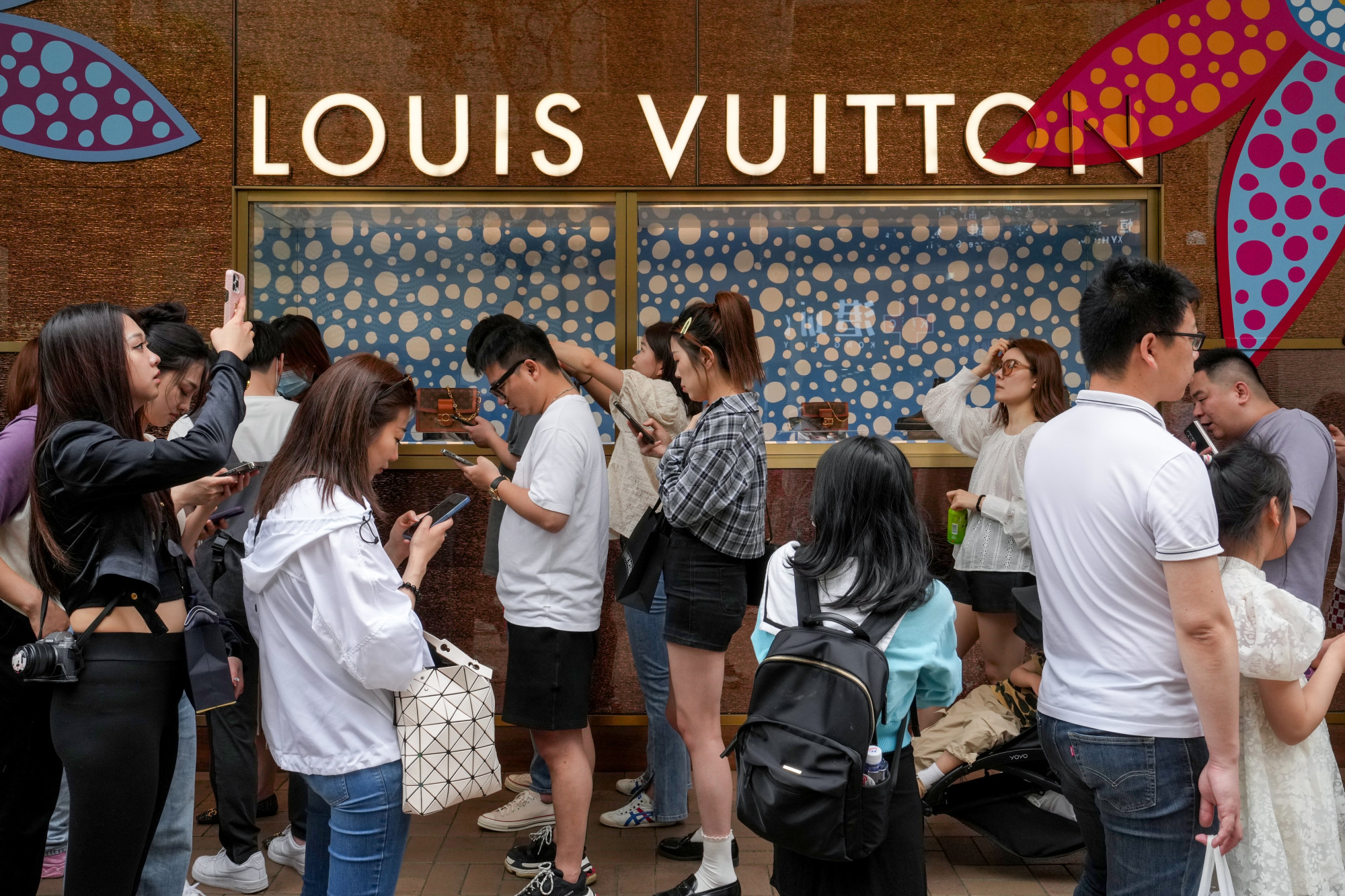
Gary Ng Cheuk-yan, a senior economist at Natixis Corporate and Investment Bank, said the latest GDP data showed Hong Kong had benefited from increased consumer spending after Covid-19 measures were lifted earlier this year.
“The renewed tourist inflows should help support Hong Kong’s heavily battered tourism sectors. With 600,000 mainland visitors coming in, it can bring HK$2.5 billion of spending or 0.1 per cent of GDP within five days,” he said.
“Still, the pace is gradual as the number of mainland tourists is only 60 per cent of pre-pandemic levels.”
Ng also raised his estimate for annual growth by a full percentage point, to 4 per cent.
‘Happy Hong Kong’ drive, e-vouchers to strengthen economic recovery: Paul Chan
Iris Pang, chief economist for Greater China at financial services firm ING, said 2.7 per cent growth was considered “quite slow”, as last year’s base effect was a contraction.
“Surely this signals Hong Kong is not in a recession any more. But it also reflects that the recovery lacks strength,” Pang said.
She added further economic recovery in the coming quarters depended on cross-border activities, adding the golden week had helped with recovery. She said similar retail sales growth was expected in the summer.
But Pang warned the United States was expected to go into recession in the fourth quarter.
“By that time, exports and imports of mainland China and Hong Kong would be weak,” she said. “That would put pressure on the economy again.”
Additional reporting by Kahon Chan


